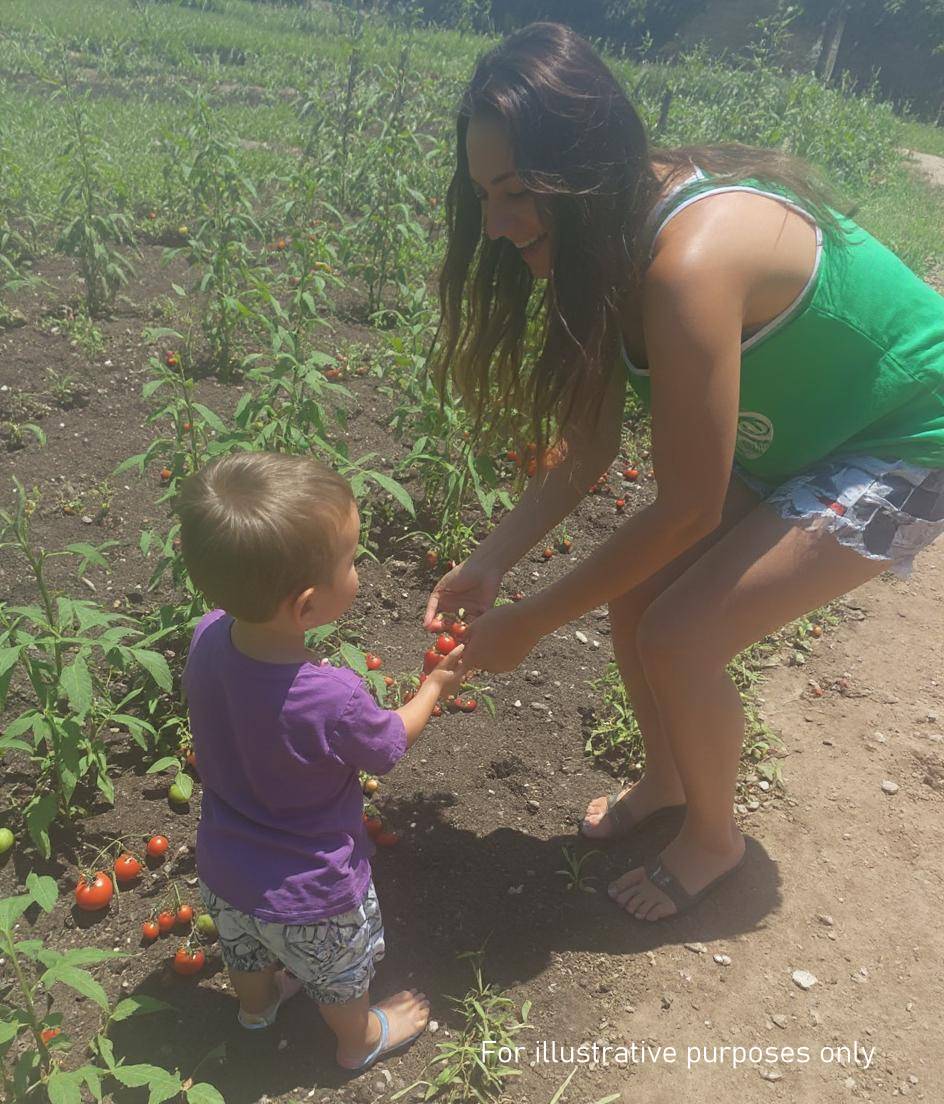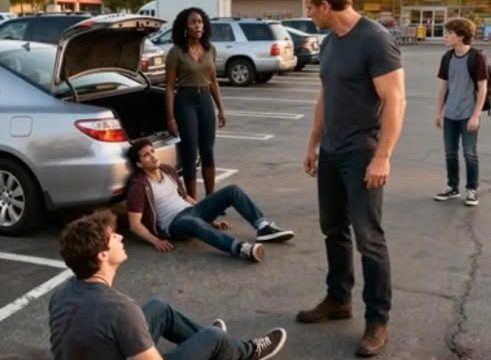My name is Mara, and I grow vegetables to feed my family—not for fun, not for likes on social media, and certainly not because it’s trendy. We’re not wealthy, and every carrot, cucumber, and tomato that comes from my backyard garden is the result of hard labor, sore muscles, and countless early mornings. If I could afford a proper fence, I would’ve built one years ago, but food and fencing both cost money we simply don’t have.

Growing your own food might seem quaint to some, but when you’re depending on that garden for meals, it’s not cute—it’s survival. It all started when my neighbor Julian decided to put up a community pantry near his driveway. He called it “The Sharing Shelf,” stocked it with a few cans and dry goods, and posted selfies online about community and kindness. At first, I thought it was a lovely idea—until people started mistaking my garden for an extension of his shelf. Vegetables started disappearing. At first, just a cucumber or two, maybe a few radishes with their tops left behind like someone’s used napkin. I thought raccoons or squirrels were to blame, but the way they were harvested made it clear: these weren’t animals. I started questioning myself—maybe I miscounted, maybe I was just too tired.
But then I saw a woman lift her toddler over my bunny fence like he was climbing into a playground. The child stomped across my kale, crushing it, while she waved at me casually and encouraged him to “pick the red ones”—my tomatoes, my planned dinner. I stood there frozen, hose in hand, boiling with disbelief. I put up signs—big ones that said, “Private Property! Do Not Touch!” I added a smaller inner fence, hoping to establish a clear boundary without being too aggressive. It didn’t matter. People ignored the signs like they weren’t even there. They hopped over the new fence like garden gnomes on a mission. I tried covering the garden with a tarp to block street view—someone removed it within three days.
One day I caught a man sneaking through my squash like a cartoon burglar. He said he was just grabbing cherry tomatoes for his anniversary dinner. Another time, teenagers were lounging in my lettuce rows, leaving trash and trampling plants. I had enough. I went to Julian and told him that while his pantry idea may have come from a good place, it made people feel like they were entitled to my garden. He looked at me and said, “Can’t you share some?” No. I couldn’t. I told him I was growing food to keep my family fed. If I had extra, I’d gladly share—but I didn’t. What he and the others didn’t understand was that this wasn’t just about vegetables. It was about effort, sacrifice, and respect.
I had worked too hard to watch it be taken so lightly. Then one morning, half my zucchini was gone—cut right off the stems. That broke me. I spent the next week stewing over every smug comment, every missing vegetable. People in the neighborhood Facebook group were posting pictures of my garden with captions calling me selfish, suggesting I should share with “at least one poor family.” They even called me a hoarder. That’s when I remembered the irrigation setup I’d tucked away after a strawberry flood. I spent the entire day rewiring hoses and motion sensors. The next time someone reached over the fence—a woman with a yoga mat—she got hit square in the chest by a water jet.
A man in cargo shorts followed and got blasted with a freezing mist. They both fled, soaked and humiliated. The visits stopped almost immediately. Word spread fast. Facebook exploded with posts about my “booby-trapped” garden. Julian confronted me at the mailbox, calling it harassment. I told him it was just water. If they weren’t trespassing, they wouldn’t get wet. He said I was ruining the neighborhood’s spirit. I said I was protecting my home. That’s when I realized it didn’t matter if I was unpopular—what mattered was that people respected my boundary. Slowly, the garden healed. The vegetables stayed put. My youngest asked for a salad again. One afternoon, I saw a young girl—maybe twelve—standing outside my fence with a paper bag. She said her brother had stolen from me, and she wanted to apologize. The bag held cookies she made with her mom.
I accepted them—not for the cookies, but because she waited behind the fence and looked me in the eye. She got it. Before leaving, she said the sprinkler system was “cool.” That night, my husband and I felt peace again. The garden still isn’t perfect. Weeds grow, rows twist, and the sun sometimes scorches the spinach. But it’s mine, and now, it’s respected. Julian moved his pantry to another street. The issue was never the pantry—it was entitlement. Had anyone asked, I might’ve shared. But they didn’t. They took. And now, thanks to a little water and a lot of persistence, they finally understand that even a tomato has value when it’s earned, not stolen.





